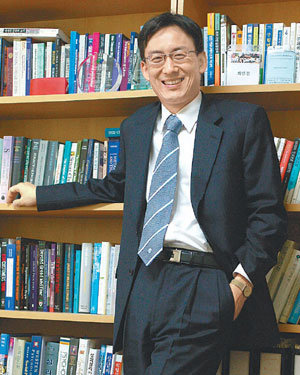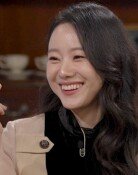Self-Frame

The Psychological Frame for Self Revolution (21st Century Books) sounds like other common books aimed at self-development. The theme that changing the frame, or the window of our mind, will make us happy is not new.
However, the preconception vanishes as one turns the pages of this book. Based on the results of psychological research, the book reveals the limits of our mind, which is full of errors, pride and prejudice.
The final notice game by the Stanford research team shows how easily our mind is influenced by our circumstances. For instance, a participant is told to divide 10,000 won to share it with other participants. When the participants were told that it was a Wall Street game, many of them divided the money to their advantage. When told that it was a community game, they divided the money fairly. Common objects such as a briefcase or a fountain pen commanded the frame of mind. A considerable number of participants allotted more to themselves.
People play with fingers while singing in their minds. In an experiment by a Yale research team, 50 percent of participants were sure that the audience would recognize what music they played, but in fact, only 2.5 percent was recognized. The author calls it ones self-frame. What is clear in ones self-frame can be ambiguous to others. Thus, psychologists describe the self as dictatorial in determining ones outlook on the world.
The lecture of the author, Seoul National University Psychology Professor Choi In-cheol, is well-known, as it was introduced as one of the three outstanding lectures at Seoul National University. I asked the author, who is currently residing in Berkeley as an exchange professor, why he wrote the self-development book.
There are more books for self-development based on personal experiences than on objective facts in Korea, while books that are not only academic but also for the public are available in other countries. I wanted to write a quality book set on a clear basis.
Wary of the recent hype around financial technology, Professor Choi said, Our life is too valuable to live only with the frame of financial technology for how to make and manage money. He warned against the self-frame, saying, Egoistic attachment and illusions in thinking I know you, but you dont know me prevail in our society, including in politics and labor relations.
The book is very accessible, as Choi tried to overcome his own self-frame. He showed the manuscript to his wife and corrected sentences over and over again when she pointed out that he was trapped in his own frame.
Choi recommended a frame focused on meaning to readers. He stated, Ask about the meaning and vision of what is happening to you. If you think that you are approaching truth one step closer when you read a book, or that you are making a corner of the earth clean while you are cleaning your room, doesnt your life become happier?
zeitung@donga.com





![반찬통 착색 고민 끝…‘두부용기’ 버리지 말고 이렇게 쓰세요 [알쓸톡]](https://dimg.donga.com/c/138/175/90/1/wps/NEWS/IMAGE/2026/01/09/133126593.3.png)

